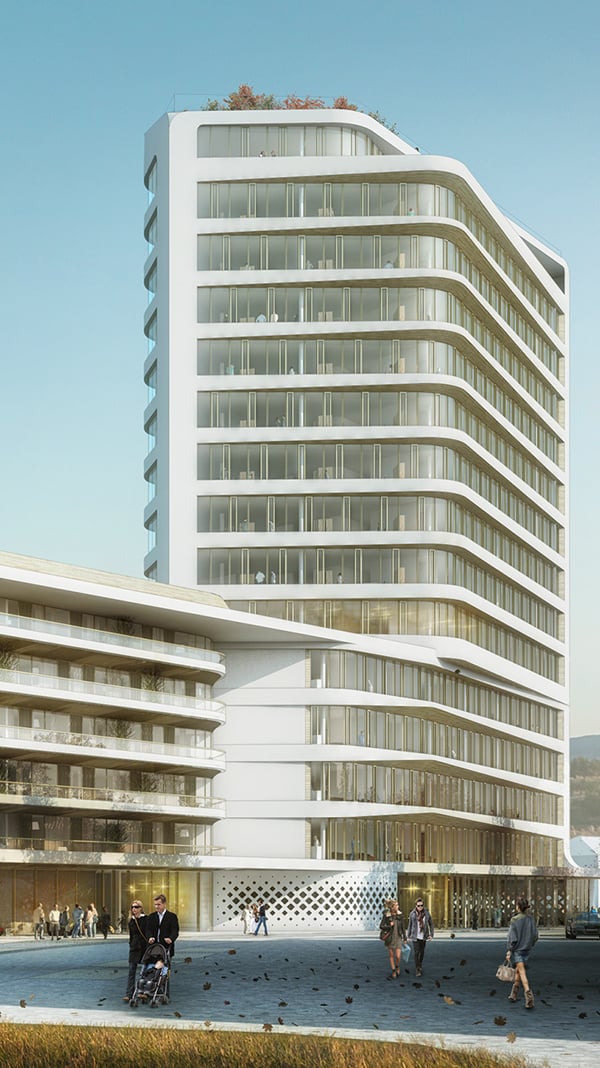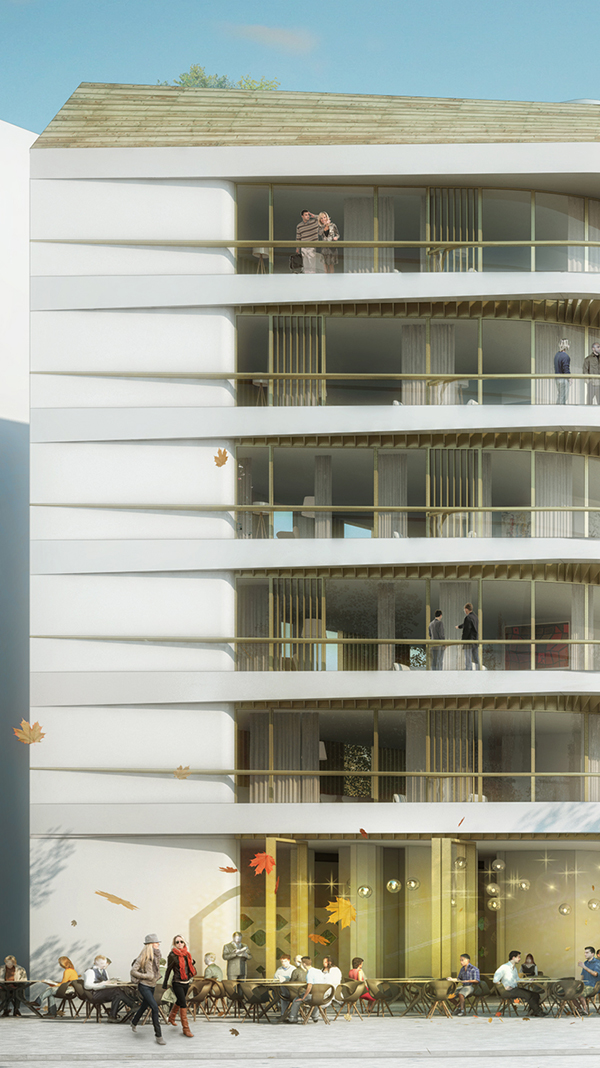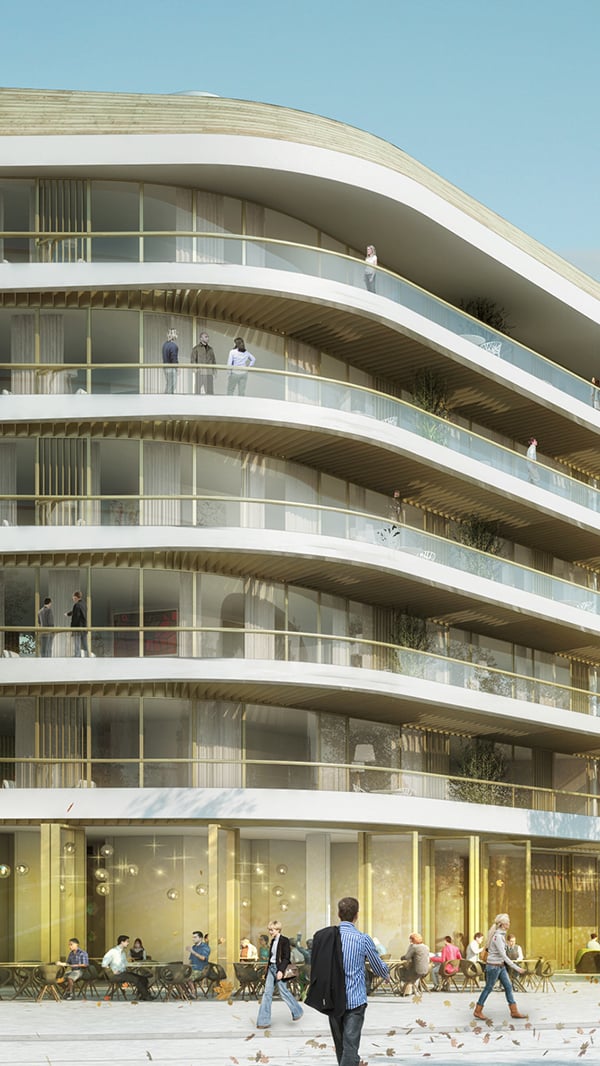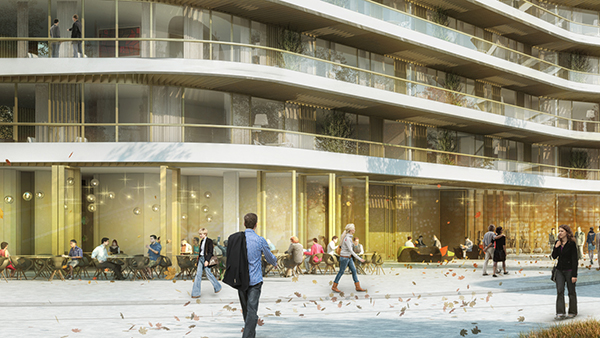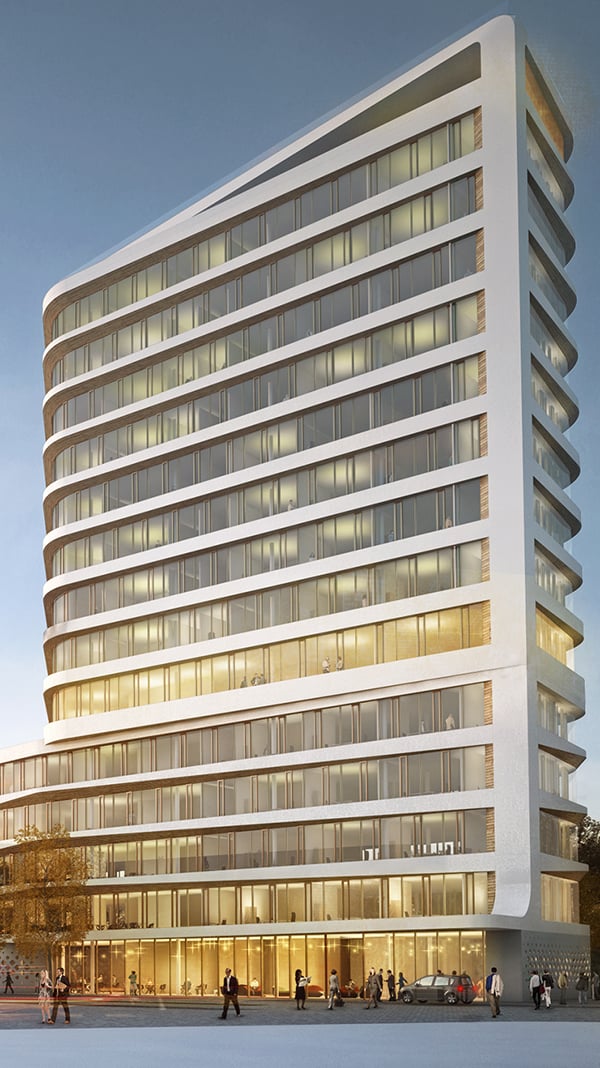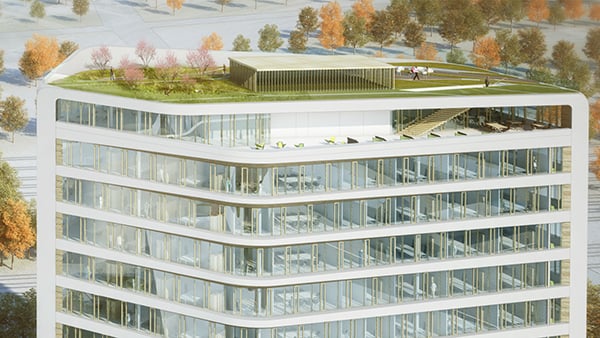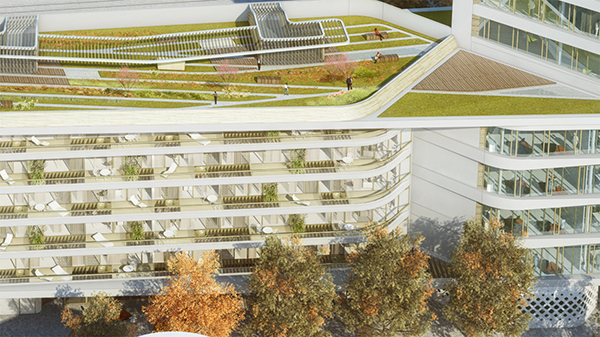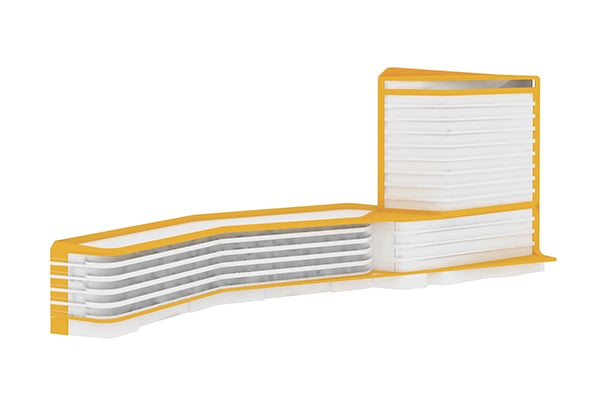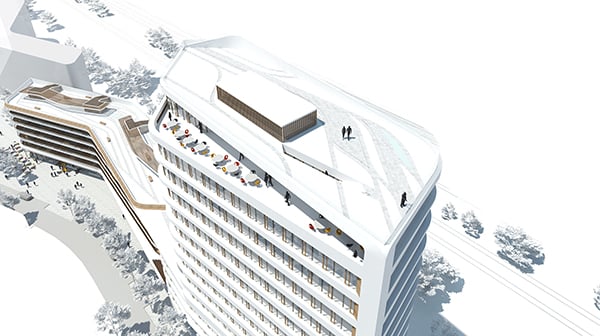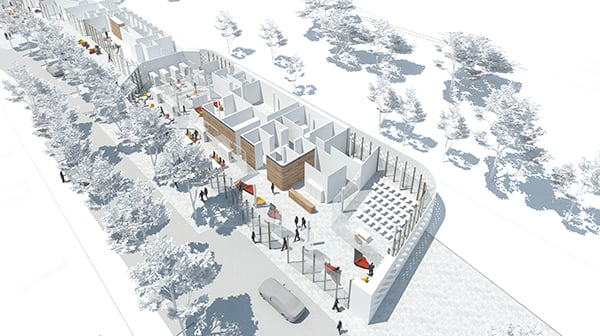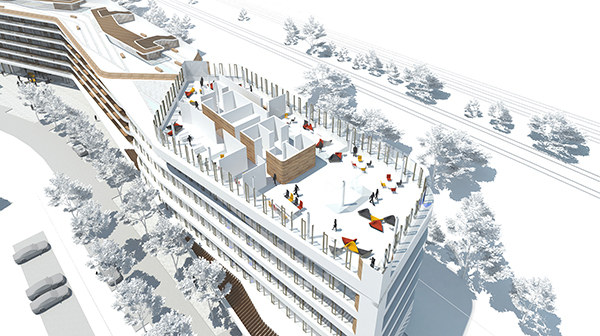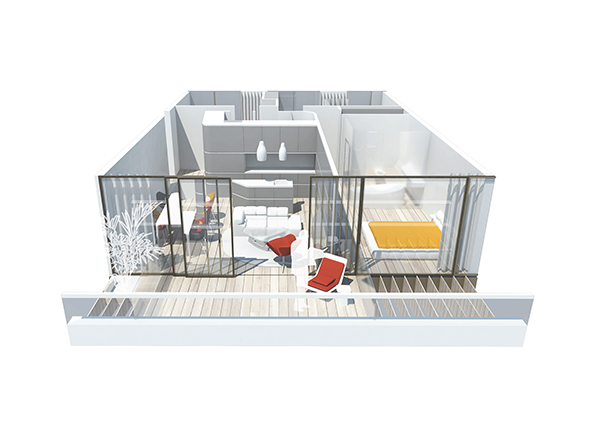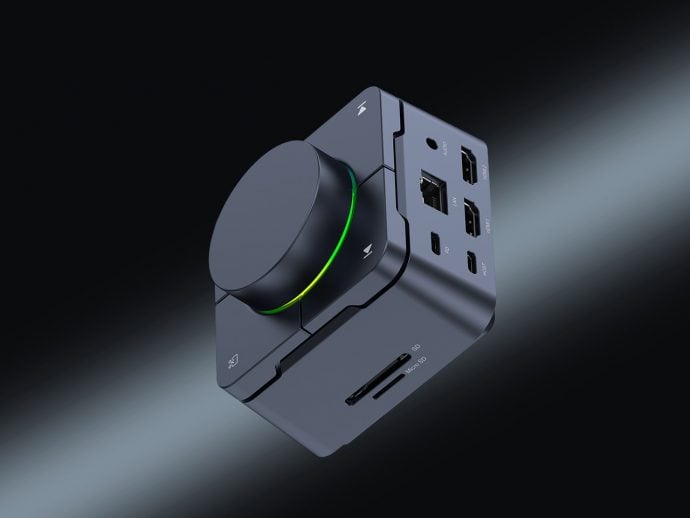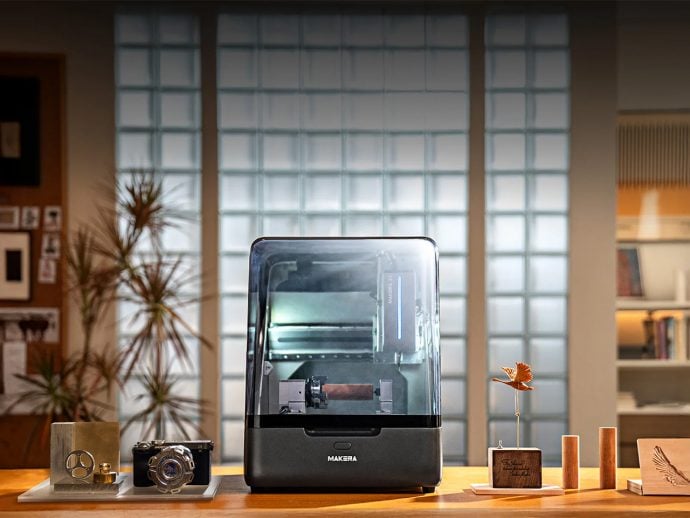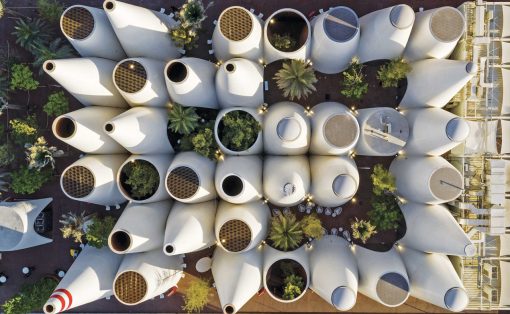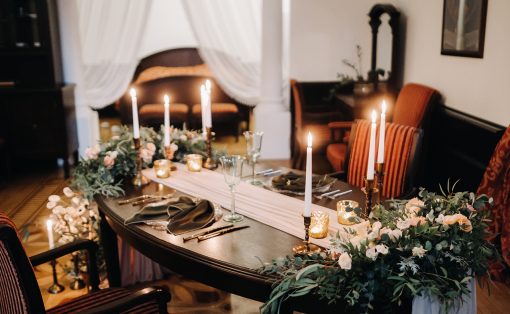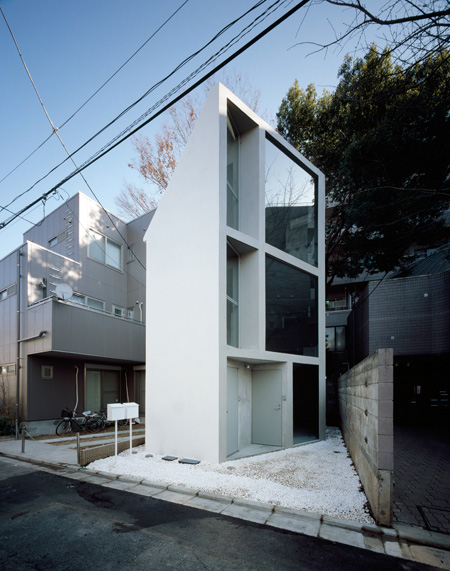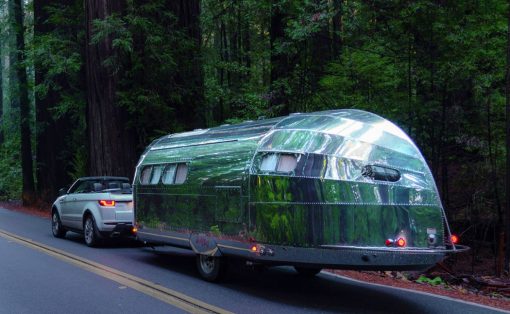Ben van Berkel’s UNStudio in combination with OR else Landscapes comes out on top as the winner of a competition for a proposed focal point of the new Baumkirchen Mitte development in Munich. The nearly 200-foot tall mixed use structure features 140,000 square feet of office space, as well as 60,000 square feet of contemporary apartments. As for the exterior, horizontal rings of balcony and outdoor space are complimented by a larger, multipurpose green area that takes advantage of the expansive roof space.
Neutral spaces, such as foyers, lobbies and meeting areas are used to establish the identity of the building. The design combines both zones that guarantee maximum flexibility for varying combinations of users and exclusively designed areas that provide spaces for communication and creativity.
Changing demands and expectations in contemporary living form the starting point for the residential areas within the design. Flexible accommodation types are incorporated which afford variable constellations and offer the possibility to combine adjacent units. In addition, flexible floor plans enable a variety of configurations in the apartment layouts, thereby directly addressing the specific and individual needs of the residents.
Outdoor spaces vary in scale and form an integral part of the apartments. The living experience is therefore not confined to the dwellings alone, but instead begins as you arrive at the building and enter the circulation areas. Thereafter it extends into shared and private outdoor spaces. This extension of the living concept stimulates interaction between residents and creates a balance between activated public spaces and the need for privacy.
The facade design reflects the duality of the program, with two contrasting materials defining the look and feel of the building. Bright metal forms the background, lending the structure a contemporary and light aesthetic, whilst the contrasting use of wood affords the building the appearance of a custom-made furniture piece for the urban space.
The remaining traces on the location of a previous rail yard form the blueprint for the structure of the roof gardens. The linear frameworks in the landscaping of the gardens accommodate fields of kitchen gardens and play areas, as well as rows of ornamental grasses and flowering perennials and are inspired by the spontaneous vegetation of the track fields. Through the integration of vegetable gardens, systems for rainwater harvesting, composting and beekeeping areas the roof garden becomes more than just a recreation area. Additionally, it plays an important ecological role by contributing to a sustainable living environment.
Designer: UNStudio
